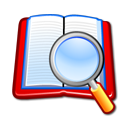How can I get involved?
Daftar isi
How can I get involved?
iSIKHNAS will become the backbone of all Indonesia's efforts to improve animal health, secure the livelihoods of livestock owners and ensure good management of production and food supply in the country. It was designed and built in careful collaboration with a wide range of dedicated staff working for improved animal health in many different regions. It has been piloted and reviewed and we are now planning its wider roll-out throughout the country. Come and join us...
Are you and your team ready for iSIKHNAS?
Whilst much effort has been gone into minimising change, the new iSIKHNAS will inevitably bring about some change for all staff. It will be important to consider the impact of this change and to ask your team if you are ready for the challenges as well as the benefits ahead.
Ensuring an easy implementation
The ease of implementation of iSIKHNAS is influenced by the presence of several factors, including
- A network of village based animal health reporters (pelsa) who can act as a contact point between the community and Dinas staff.
- A willingness among staff to change routines and adopt new ways of working
- An appreciation of the value of accurate data for decision-making
- A motivation to access comprehensive animal health data on a local as well as broader level
- A clear desire to provide improved services to farmers and to build good relationships between the community and veterinary services.
- A willingness to train staff, monitor and support their work in a consistently positive and constructive manner
- An ability to learn from and respond to the data collected in a responsible and considered way
- A desire to better target resources and activities to meet the deficits exposed by this newly available data
- A clear desire to see the whole team better occupied by core animal health work rather than purely administration
- A preparedness to be a part of the entire iSIKHNAS system, adapt as it grows and develops in response to user demands, influence its future in a collaborative way and assist in ensuring its safekeeping.
Checklist: Do you have...?
- A good general awareness of the requirements and benefits of the system among staff.
- A local co-ordinator carefully appointed using the iSIKHNAS Coordinator Job Description.
- Field staff and management open and willing to change their routine as well as the allocation of time and resources.
- Good relationships and communication between staff.
- Readiness to be faithful to the founding principles of iSIKHNAS.
- Motivation to learn and invest effort, time and some resources.
- Time, budget and commitment to ensure staff are properly trained.
- Readiness to encourage and support the village level reporter(pelsa)network in your area.
- Motivated and interested communities and village level reporters appointed (and trained)?
Do you understand the important iSIKHNAS principles?
As any system matures, it is valuable to keep in mind of the founding principles upon which it was designed and built. iSIKHNAS was designed so that it should;
- be flexible, user-friendly, sustainable and bring benefit to all of its users.
- meet the needs of users from as many sectors of the livestock industry as possible.
- use appropriate technology and not require great change to existing systems.
- integrate existing systems to facilitate the collaborative use of data.
- simplify and ease the data entry burden and ensure the rapid availability of data from the field.
- recognise the vital contribution each user plays in the transfer of information.
- provide benefit and good service to all its users.
- make all data widely and freely available for decision making at all levels and for a multitude of purposes.
Do you have a coordinator?
The coordinator will be pivotal.
A system coordinator will have to be appointed from your staff. This person will be vital to the successful adoption and implementation of the system. Good coordination is built on good relationships, clear and timely communication, leadership and support. The leadership and guidance shown by the coordinator will help to ensure the important guiding principles remain fundamental to the system and its users, all users are properly supported and offered guidance and that the data collected meets the needs of the district.
Every coordinator will have to be equipped to chaperone newcomers to the system, assist in training and all ongoing system operations, offer support by telephone and email, monitor reporting, errors and address weaknesses. This person will need good access to the internet, a reliable mobile phone and time to concentrate on the important tasks involved in the role. Coordinators will receive training prior to implementation of iSIKHNAS in the area. The coordinator will also need to train all other users in the way the system works, its principles, purpose, and the standard operating procedures needed to ensure all users are clear about their responsibilities. The iSIKHNAS Job Description for this role should be used when deciding who would be best to take this important position.
iSIKHNAS is not a data collection tool but an integrated system which will empower its users with access to relevant, up to date information rapidly and cheaply so that they can concentrate on core activities. A coordinator will be able to help motivate and encourage staff and will be an ambassador for the system.
Staff should be congratulated and thanked, given positive reinforcement for their successful engagement with the system and assisted wherever there are difficulties. Collaboration with livestock owners and their communities should give benefit or have positive outcomes at every interaction. At every step, we should remember that this is a system for providing a service to all its users equally. If everyone contributes with this in mind we will all benefit.





